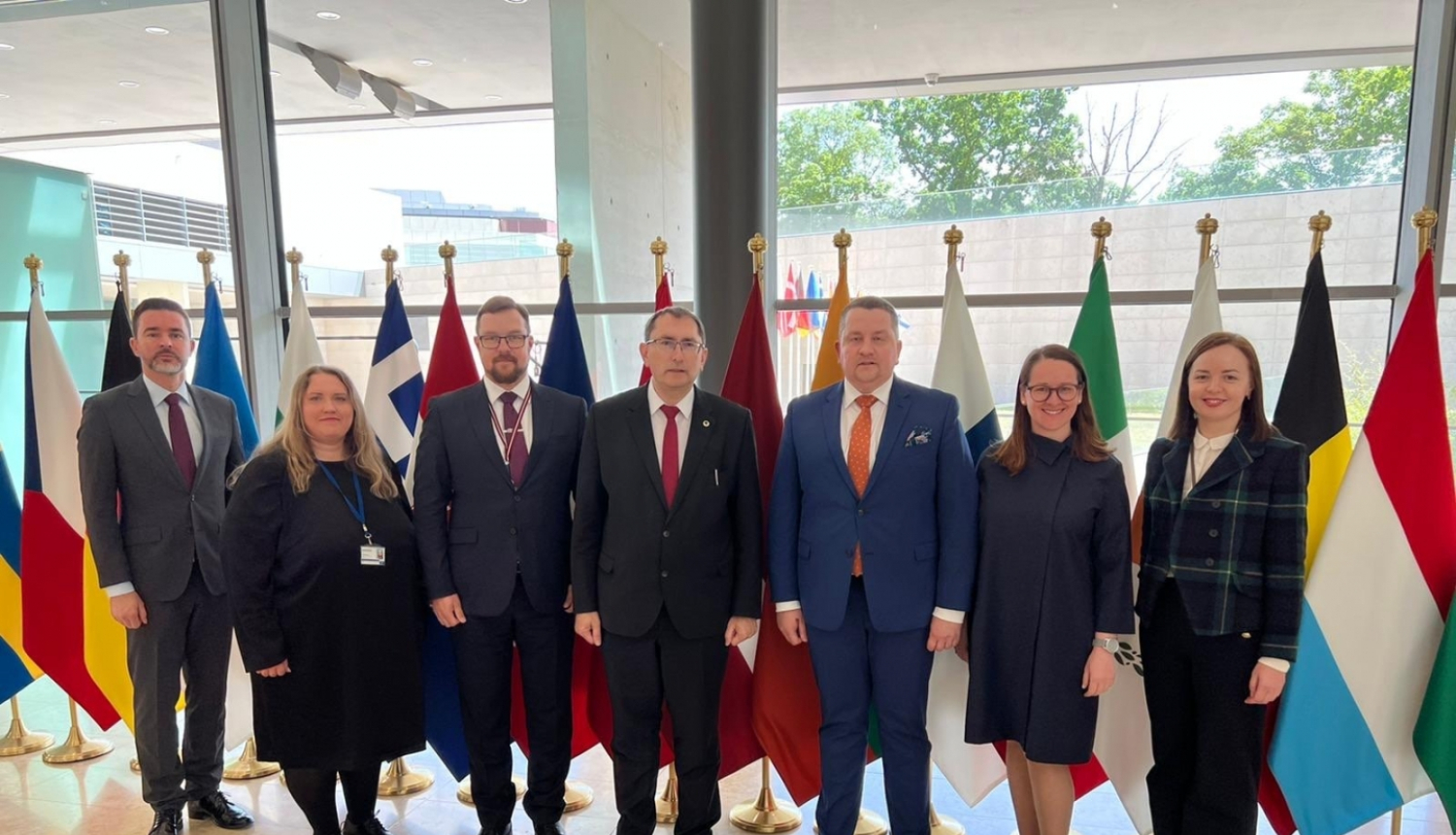Achieving climate goals in the transport sector requires a comprehensive strategy for sustainable alternative fuels and the necessary infrastructure, said Minister of Transport Tālis Linkaits at the European Union (EU) Transport, Telecommunications and Energy (TTE) Council on Thursday, 2 June 2022.
He has noted that in general Latvia supports the long-term goal of reducing the transport sector’s dependence on oil and gradually moving towards more efficient use of resources and energy. “We believe that the approach must be balanced and sound. The electric charging network must be improved and expanded, while taking into account the different situations in the EU Member States, including the traffic and transit flows, and the geographical aspect,” said the Minister.
The transition to alternative fuels is one of the points in the European Green Deal, which is the EU’s key roadmap for making Europe climate-neutral by 2050. According to the Green Deal and the Sustainable and Smart Mobility Strategy, at least one million of the planned three million publicly available recharging points by 2030 should be installed by 2025, providing charging for 13 million zero-emission and low-emission vehicles in the EU.
EU transport ministers also discussed support for Ukraine, given the challenged possibility of exporting grain from Ukraine, looking for both new alternative routes and other solutions to support Ukraine.
Even before the EU ministerial meeting, Minister of Transport Tālis Linkaits, together with colleagues from the other Baltic States, as well as transport ministers from Poland, the Czech Republic, Bulgaria, Romania and Slovakia, agreed on a joint call for further action on infrastructure investment projects affected by Russia’s war in Ukraine by signing a joint statement submitted to the European Commission in Luxembourg on Thursday.
“More than three months have passed since Russia attacked Ukraine and the current developments also have a negative impact on the transport sector. The challenges we face will be long lasting. Costs of materials and services, energy prices - all that can negatively affect the implementation of projects and cause delays,” outlined T. Linkaits.
Ministers therefore call for appropriate solutions to be considered at European level, extending the deadlines for projects, rescaling them or seeking additional funding.



